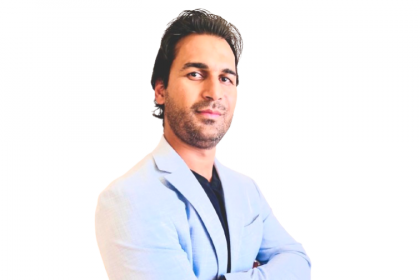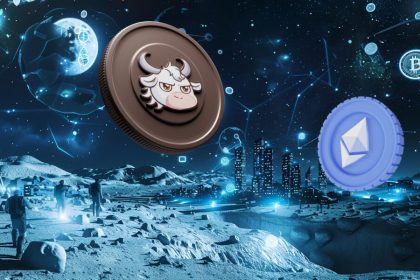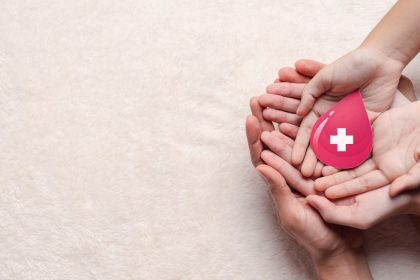I never thought I’d be sipping my morning coffee with a side of psilocybin (magic mushroom) edibles, but here we are. In Silicon Valley, microdosing magic mushrooms (taking tiny non-intoxicating doses) has gone from an open secret to almost normal.
I was skeptical when I first heard technology colleagues in San Francisco casually mention their “sub-perceptual” shroom routine. But curiosity got me. And as someone who’s worked in both the SF Bay Area and Vancouver technology scenes, I’ve seen microdosing grow into a real trend for optimizing work and life in our industry.
The Silicon Valley microdosing culture
Microdosing is part of the productivity routine in San Francisco’s startup circles. It’s not flaunted (you won’t see people dropping capsules in the office openly), but mention microdosing at a meetup for tech people and you’ll get knowing nods. I remember a Friday hackathon where a teammate quietly offered me 0.1g of ground mushroom in a capsule. “For flow,” he winked.
Many swear by it for reaching a “flow state” on demand. They are talking about that zone where the code writes itself, and creative solutions click. One startup publicist (pseudonym “Lily”) told Wired that microdosing “helps me think more creatively and stay focused” and even makes managing stress easier. She was one of many young professionals in San Fran experimenting with tiny doses to boost performance at work.
You’re not tripping out at those sub-hallucinogenic amounts (often around a tenth of a standard dose.) You’re just a bit more energized and mentally tuned in, sort of like a cup of coffee. Folks report slightly sharper concentration, easier problem-solving, and less anxiety on microdose days. It’s like a gentler version of the coffee+Adderall vibe that some developers sometimes chase, without the jitteriness or prescription dependence.
Silicon Valley has always loved “optimizing” everything, from biohacking diets to nootropics. Microdosing fits right in. By the late 2010s, it was the worst-kept secret in the technology world. Many engineers, product managers, and even VCs were microdosing LSD or shrooms before work. Influencers in Vancouver and San Fran openly discussed it, which got a reputation as “productivity fuel.”
Think of the lore that Steve Jobs dabbled in psychedelics or that confident CEOs have ritual morning nootropic stacks. People took that and ran with it. There’s a tongue-in-cheek saying that if you’re not microdosing in SF, are you even trying to innovate? That overstates it, but only a bit. The pressure to create and solve complex problems is real. Some see microdosing as a competitive edge.
I’ve personally found that a microdose can make me more open-minded during brainstorming. My mind isn’t as stuck in the usual boxes, which is gold for creative problem-solving. A coder friend said that on microdose days, his debugging sessions feel less frustrating, almost fun, because he’s more patient and curious rather than stressed.
Vancouver’s take: Shrooms everywhere
When I moved to Vancouver, BC, I discovered the microdosing scene isn’t just a Silicon Valley thing. Vancouver’s technology community has its own flavour. For one, actual mushroom dispensaries popped up here in recent years. There are brick-and-mortar stores where you can stroll in and buy microdose mushroom capsules or infused chocolates like it’s a candy shop. It’s technically illegal, but the authorities looked the other way for a while, and these grey-market shops flourished.
By 2024, Vancouver had a full-blown “shroom boom” with dozens of storefronts selling everything from 0.1g psilocybin capsules to macro-dose dried shrooms. This made microdosing absurdly accessible. In San Francisco, you had to know a guy who knows a guy, or order dubious “research supplies.” In Vancouver, a junior developer could pick up a month’s supply of microdose pills on their lunch break.
The technology crowd in Vancouver embraced this accessibility. I’ve sat in trendy Gastown coffee shops and overheard twenty-something startup founders swapping notes on their microdosing regimens, which strains felt “clear and light” versus “warm and chatty.” It’s become a normal topic, akin to discussing intermittent fasting or your 10K run times.
Vancouver-based AI CEO (founder of Caseway), Alistair Vigier, commented that “microdosing is common in technology accelerators, where people often don’t drink alcohol”.
I see this, too. There’s noticeably less beer and wine at networking events or startup accelerator parties in Vancouver. Instead, you have folks who’d rather stay sharp, maybe sipping kombucha while having downed a microdose earlier.
It’s a twist on the “West Coast Cali sober” trend, where people replace alcohol with things like shrooms or cannabis to feel good without the hangover. A recent lifestyle piece even noted that many young professionals see microdoses of mushrooms as a healthier alternative to booze. It can provide a light mood lift and energy boost without losing control. That rings true in my experience. A Microdose doesn’t leave you foggy the next morning, so it appeals to startup folks who need to be on their game coding at 8 am, not nursing a hangover.
Why we microdose and what it does for us
So, why are techies doing this? From my perspective and those around me, the appeal is a mix of productivity, creativity, and emotional resilience. On a good microdosing day, I feel subtly “dialled in.” It’s easier to get into deep work. I’m looking for a state where I might usually be distracted by Slack pings, but instead I’m calmly focused on the task. My mood gets slightly uplifted. I’m just a bit more optimistic or at ease, which helps with the stress rollercoaster of startup life.
If you read through forums or talk to microdosers, you’ll see these common motivations come up again and again. They report better focus, creativity, improved mood, and less anxiety. I’ve heard designers say that a microdose before a brainstorming session helps the ideas flow more freely. A product manager describes it as “WD-40 for teamwork” because he feels more empathetic and patient in meetings. In my case, I notice I’m less likely to snap at bugs or last-minute changes. Those things become amusing challenges rather than triggers for frustration.
There’s also a mental health aspect. Burnout is rampant in the technology world, and some use microdosing as a preventative measure. This can be a way to maintain emotional balance. One Vancouver developer I know started microdosing during the pandemic to fight off boredom and found it lifted his baseline mood on tough days.
Preliminary research is starting to back some of it up. For example, an observational study in 2022 found that people who microdosed psilocybin for a month reported minor improvements in mood and mental health compared to those who didn’t. Another early research saw microdosers self-report lower depression and anxiety levels, though it relied on self-reporting and wasn’t a clinical trial. The science is young here, but it’s catching up to what many of us have felt anecdotally.
Microdosing is about enhancing reality, if that makes sense. The dose is so low (often around 0.1 to 0.3 grams of dried mushrooms) that you won’t hallucinate or lose touch. You’re fully functional, maybe operating at 105% instead of 100%. A colleague once joked that microdosing “tunes you to the right frequency.” You still deal with the same code bugs and Zoom calls, and handle them better.
Personally, on days I microdose, I find I’m more likely to take a step back and see the bigger picture when solving a problem rather than getting tunnel vision. And yes, sometimes work just feels more enjoyable. Writing code can oddly start to feel like a creative art again when my mindset is a tad more flexible.
Not all rainbows: Challenges and misconceptions
Microdosing is still illegal pretty much everywhere (aside from a few decriminalized pockets). This means people do it on the down-low. There’s a bit of a wink-nudge understanding in our circles, but make no mistake, if HR found out you’re taking shrooms at work, it could be trouble. I know folks who microdose only on weekends or “work from home” days to avoid any risk.
One recent survey of microdosers noted that illegality was the number one challenge people reported, followed by some physical side effects (like mild stomach upset) and occasionally impaired focus (ironically) on dose days.
That last part is interesting. Microdosing doesn’t work for everyone or every task. I’ve had days where I took the same dose as always, but instead of flow, I got this subtle restlessness, like my mind was wandering more than usual. Not every microdose day is super productive; sometimes, it might make you too introspective or distractible, depending on your mood and your work.
Dosing itself is a challenge
We’re talking about tiny amounts of a natural fungus. Potency can vary between mushroom batches (or stems and caps). It’s easy for a “micro” dose to accidentally become a mini dose if you haven’t measured carefully. Early on, I eyeballed a dose and became more buzzed than intended. The colours were a smidge brighter, and I realized I was definitely feeling it. Whoops.
There are Reddit threads of people admitting their microdose turned into an unplanned mild trip at work. Precise scales and pre-measured capsules are a must if you want consistency. As one researcher put it, the difference between a true microdose and an “oops I’m a bit high” dose can be a few milligrams of psilocybin, and mushrooms don’t exactly come with dosage labels. So there’s a learning curve in getting your dose dialled in. Some in the community even go further, doing at-home extractions or buying lab-tested microdose products to be sure of the content.
Another misconception: people sometimes assume microdosing will solve things for them. It’s not a magic bullet. If you’re a chronic procrastinator or you hate your job, a sprinkle of shrooms isn’t going to turn you into a motivated superstar instantly. I’d say it’s more of a nudge than a shove. Think of it like a supplement that gives you a slight edge or a different perspective. You still have to work. Scientists are still debating whether microdosing’s benefits are partly placebo.
Some placebo-controlled trials and experts have pointed out that we don’t have definitive proof that microdosing isn’t just the power of expectation at work. From personal experience, I suspect there is a real effect, but mindset matters too. The ritual of microdosing, intentionally trying to improve your mindset, might prime you to have a good day.
If you expect a microdose to make you more creative, you might look for creative sparks more and thus find them. So it’s wise to keep a bit of skepticism. I treat microdosing as just one tool in the toolbox: helpful, but not miraculous.
Keep in mind that not everyone should or can microdose. Some people I know tried it and felt nothing at all, or felt mild anxiety instead of calm. Brain chemistry is personal. Plus, it’s obviously a no-go in specific jobs (say, anything with heavy machinery or public safety).








